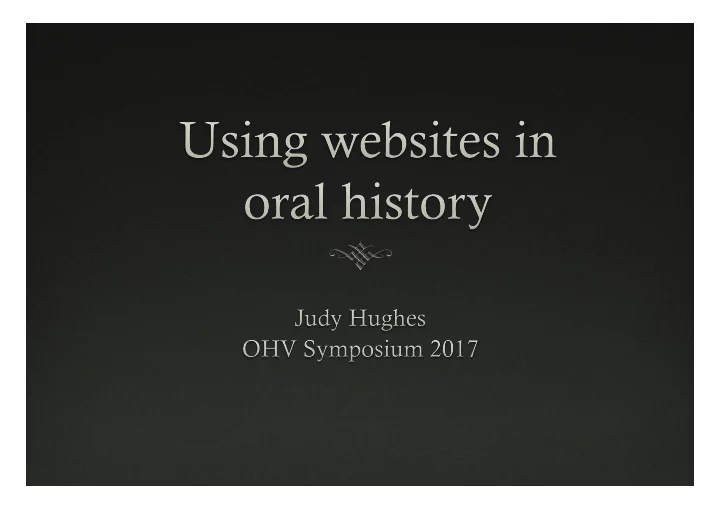

Oral history collections The nicely catalogued but rarely consulted shelves of audio and video cassettes in even the best media and oral history libraries are closer than most people realise to that shoebox of unviewed home video camcorder cassettes in so many families - precious documentation that is inaccessible and generally unlistened to and unwatched. Michael Frisch
Overview The advantages and issues in using websites and other online technologies for oral history Creation Curation & interpretation Dissemination
What do I use?
Creation How can online technologies help me create oral history? Advantages: Remote interviews Issues: Sound quality Cost What to use?
Apps for interviews
Curation Advantages: Multimedia experience that is: Enhanced storytelling Visually engaging & provides context Focus on themes - excerpts Layering of information for different audiences Searchable Indexing, transcript, summaries, tags
Densho
Visual History Archive
Audio-Video Barn
Australian Generations
Exhibitions
Embedded elements
Collaboration
Curation - Issues Cost: domain hosting IT professionals Technical expertise Need to understand file types HTML, markdown Maintenance and updating
Wordpress WordPress.com Free, but limited features Advertising Automatic updating WordPress.org Costs – pay for domain name, hosting More customisation, but more complex
Dissemination Global audience Option of password-protected limited audience Searchability Collaboration
Issues Potential misuse Legal issues Permissions Information overload
Terms of use
Accessibility Government requirements Best practice Transcript, closed captions, audio descriptions
Emerging technology Transcription Remote interviewing applications Voice-activated search
Recommend
More recommend